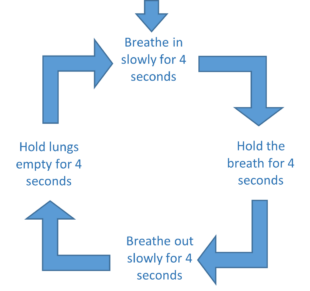When we talk about ‘exam pressure’, we often think about revising or taking exams, but feeling uncertain around results day is common too. To manage this kind of uncertainty, try to understand what might be causing it and think about strategies that will help.
Remember that feeling apprehensive, worried or anxious about important news is normal. Your results will influence what you do next – the course, college, university, or job you take – and it’s understandable that you might feel some level of nerves.
Students we have spoken to have told us that their main worry was not getting the results they hoped for, how they would tell their parents or friends, and what it might mean for their university or college course. But many were also worried about what would happen if they did get the results they wanted, as it would mean making a change. For many, the main cause of worry was uncertainty. And things could feel especially uncertain this year, as it is the first time since 2019 that GCSEs and A-levels have been assessed by exams.
What can you do to help?
Although you don’t know what will happen on results day, you can help manage any feelings of worry or uncertainty by making plans and preparing for different outcomes.
Plan for getting the results you hoped for
If you are planning to go to university, find out details about the courses, locations and amenities, or the different clubs and societies you can join. If it’s A levels, do some research about your courses and the resources which might be useful, such as textbooks and websites. Even finding out practical information, such as the bus you will need to catch, can help to reduce uncertainty and make you feel more in control.
Having a plan B
If you don’t get the results you hoped for, it’s really not ‘the end of the world’. We say this because most people at one time or another do not get the results they hope for, but still go on to have a successful life. If you don’t get the grades you hoped for, you may feel upset, disappointed or embarrassed, and that’s completely normal. Planning ahead for what you will do if this happens can help you see that there are ways to move forward and you will be better motivated to put your plan into action if that occurs.
Share your plans
Students often worry about how family and friends will react if they do not get the results they hoped for. As you plan for different outcomes, it can be helpful to share your plans with the people around you. It will help them to see that there are other options available and, if you need their advice, you can quickly begin a constructive conversation.
‘File’ away your plans and get busy with other things
Once you’ve made your plans for different outcomes, ‘file’ them away in your mind and get busy with other things. Being busy, getting out with friends or doing jobs that need attention, can help take your mind off the uncertain future.
Planning for results day itself
Going to collect your results can feel like a worrying experience in itself. It is useful to plan in advance how you will approach the day and make some decisions.
- When do you plan to collect your results?
- Do you want someone to come with you?
- Do you want to open your results at school or college or at home?
Planning this in advance allows you to imagine what the experience will be like and this reduces uncertainty. And remember to plan for the way you would prefer to do it, rather than feeling you must do it in the way other people think you should.
It’s understandable you may feel apprehensive about results day. Sometimes it can be helpful to use breathing techniques to feel calmer and more confident. If you think this might work for you, you could try ‘four square breathing’. This works by deliberately breathing in a slow pattern shown here:
Good luck for results day and your next steps!
Some students find it hard to cope with how they are feeling. If you feel this way, you can speak to a trusted adult, or to one of the professional organisations below:
- Childline – call 0800 1111
- Mind – call 0300 123 3393
- Samaritans – call 116 123 or email jo@samaritans.org
- Or call NHS 111 or your GP – they can assist in providing the mental health support you may need.
Authors: Dr Tee McCaldin, Professor Kevin Woods, Hannah Wilkinson, Andrew McLoughlin

Recent Comments